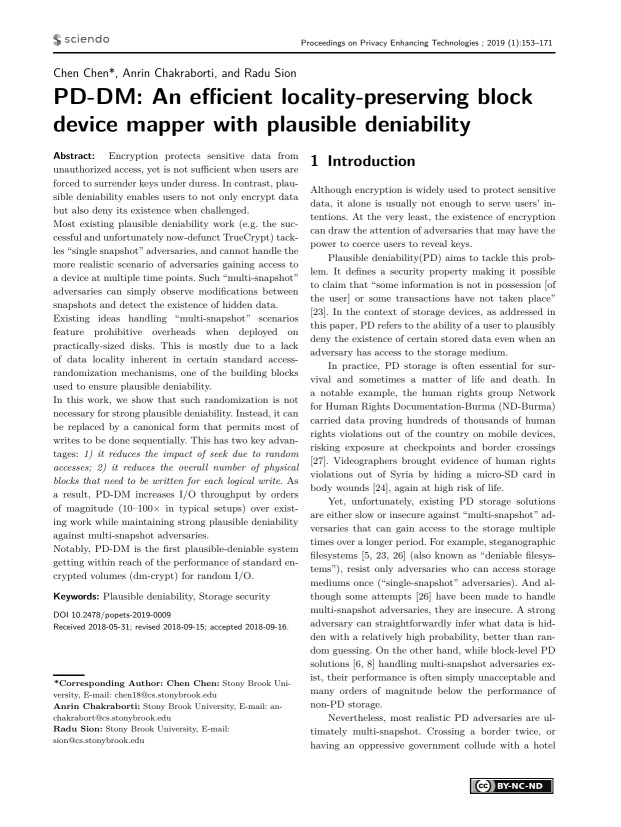PD-DM: An efficient locality-preserving block device mapper with plausible deniability
Authors: Chen Chen (Stony Brook University), Anrin Chakraborti (Stony Brook University), Radu Sion (Stony Brook University)
Volume: 2019
Issue: 1
Pages: 153–171
DOI: https://doi.org/10.2478/popets-2019-0009
Abstract: Encryption protects sensitive data from unauthorized access, yet is not sufficient when users are forced to surrender keys under duress. In contrast, plausible deniability enables users to not only encrypt data but also deny its existence when challenged. Most existing plausible deniability work (e.g. the successful and unfortunately now-defunct TrueCrypt) tackles “single snapshot” adversaries, and cannot handle the more realistic scenario of adversaries gaining access to a device at multiple time points. Such “multi-snapshot” adversaries can simply observe modifications between snapshots and detect the existence of hidden data. Existing ideas handling “multi-snapshot” scenarios feature prohibitive overheads when deployed on practically-sized disks. This is mostly due to a lack of data locality inherent in certain standard accessrandomization mechanisms, one of the building blocks used to ensure plausible deniability. In this work, we show that such randomization is not necessary for strong plausible deniability. Instead, it can be replaced by a canonical form that permits most of writes to be done sequentially. This has two key advantages: 1) it reduces the impact of seek due to random accesses; 2) it reduces the overall number of physical blocks that need to be written for each logical write. As a result, PD-DM increases I/O throughput by orders of magnitude (10–100× in typical setups) over existing work while maintaining strong plausible deniability against multi-snapshot adversaries. Notably, PD-DM is the first plausible-deniable system getting within reach of the performance of standard encrypted volumes (dm-crypt) for random I/O.
Keywords: Plausible deniability, Storage security
Copyright in PoPETs articles are held by their authors. This article is published under a Creative Commons Attribution-NonCommercial-NoDerivs 3.0 license.

